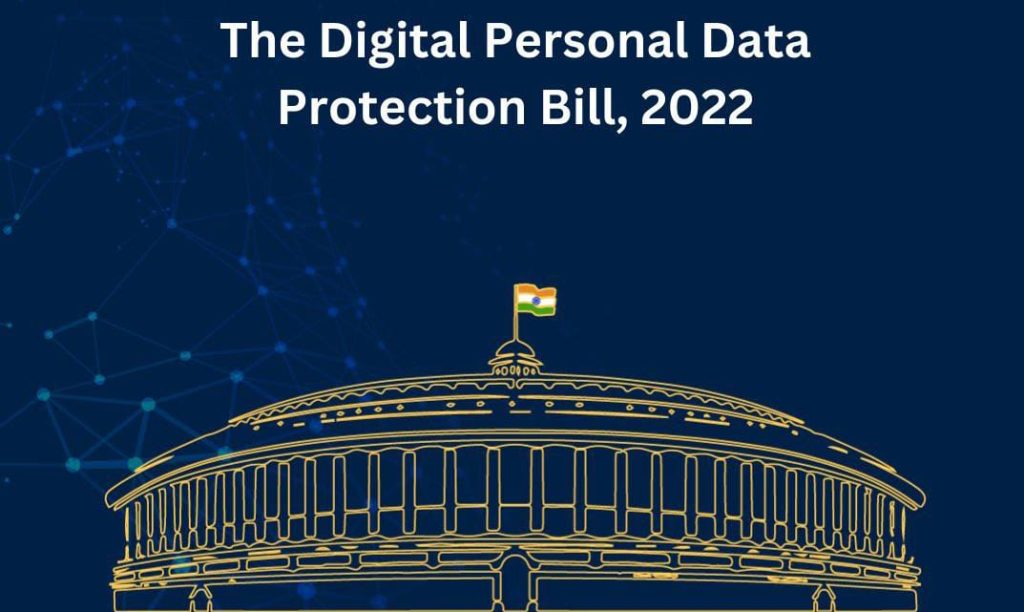For international businesses eyeing opportunities in India’s tech-savvy market or those already active in the country, it’s crucial to grasp the scope and implications of India’s Digital Personal Data Protection (DPDP) Bill, 2022. The Bill represents a significant milestone in India’s technology regulatory framework, aiming to enhance data protection and accountability for internet companies, mobile apps, and businesses handling citizens’ data.
Prioritizing the “Right to Privacy,” the DPDP Bill includes provisions for explicit consent, responsibilities of data fiduciaries, cross-border data transfers, and individual rights. Its impact is expected to extend to India’s trade negotiations with other nations, aligning itself with global data protection models like the EU’s GDPR and China’s PIPL.
India’s DPDP Bill: A Milestone in Technology Regulation
Having secured approval from the Union Cabinet on July 5, 2023, the DPDP Bill is currently being presented during the Monsoon Session of Parliament, which began on July 20, 2023. As a key component alongside the Digital India Bill and the draft Indian Telecommunication Bill, the DPDP Bill focuses on governing personal data, reinforcing data protection in India’s rapidly evolving digital landscape.
Ensuring Data Protection: Empowering Citizens through the DPDP Bill
At its core, the DPDP Bill seeks to hold entities, including internet companies, mobile apps, and businesses, accountable for handling citizens’ data. By emphasizing transparency and responsibility, the Bill aims to ensure that personal data is handled with utmost care and places the privacy and data protection rights of citizens at the forefront.
The Bill’s scope covers digital personal data within India and extends its jurisdiction to data processing activities outside the country, particularly for organizations offering goods or services to Indian individuals or profiling Indian citizens.
Key Provisions of India’s DPDP Bill: Enhancing Data Protection
The DPDP Bill, initially introduced in 2019, prioritizes privacy and security in the digital age. Recent revisions have further strengthened its provisions to ensure comprehensive protection of personal data. Key provisions of the DPDP Bill include:
- Applicability: The law applies to all online and offline data in India, ensuring comprehensive data protection.
- Individual Consent: Personal data can only be included and processed with explicit consent from the individual, except in specific circumstances pertaining to national security, law, and order.
- Data Fiduciaries and Regulations: Entities handling data are defined as data fiduciaries and are subject to additional regulations based on the volume and sensitivity of the data they handle. Data fiduciaries must appoint a Data Protection Officer (DPO) responsible for addressing data principals’ queries and concerns. The Bill also allows international data transfers with specific government-imposed restrictions.
- Establishment of a Data Protection Board: An impartial adjudicatory body, the Data Protection Board, will resolve privacy-related grievances and disputes. It possesses the authority to impose penalties for non-compliance.
- Deemed Consent: Stricter regulations may apply to private entities regarding data processing, while government entities may assume consent for certain matters related to national security and public interest.
- Voluntary Disclosure Mechanism: Entities violating the Bill can voluntarily admit their violations to the Data Protection Board, potentially avoiding legal proceedings by paying settlement fees.
- Offenses and Penalties: Data breaches may result in significant financial penalties, ensuring data protection standards are enforced.
- Permissibility of Cross-Border Data Transfers: A change in the Bill may allow data transfers to most countries by default, with specific limitations imposed on countries deemed to pose risks to data privacy.
Empowering the Data Principals: Privacy Rights under the DPDP Bill
The DPDP Bill grants data principals significant rights, including the right to postmortem privacy, requesting deletion of pre-existing data, and questioning data collection and processing. The Bill’s focus on exceptional circumstances ensures data protection remains practical and adaptive in real-world situations.
Navigating India’s Digital Market: Complying with the DPDP Bill for International Businesses
With India’s thriving startup ecosystem and increasing reliance on data-driven technologies, effective data regulation is crucial. Data regulation establishes a robust framework that safeguards against misuse, breaches, and unauthorized access, fostering trust and responsible data handling practices. By striking a balance between innovation and data privacy, India’s DPDP Bill reinforces the foundation for a flourishing and sustainable digital ecosystem.
For international businesses, understanding and complying with India’s DPDP Bill are vital steps to navigate India’s digital market successfully while upholding privacy rights and data security. Adhering to the Bill’s provisions ensures legal compliance and builds trust with Indian customers, setting the stage for a successful and secure business journey in India’s tech-savvy landscape.
Do you have a question about this article or about doing business in India, please get in touch with us here or send an email to monika@nyasa.solutions.
Source image: Civilsimage

